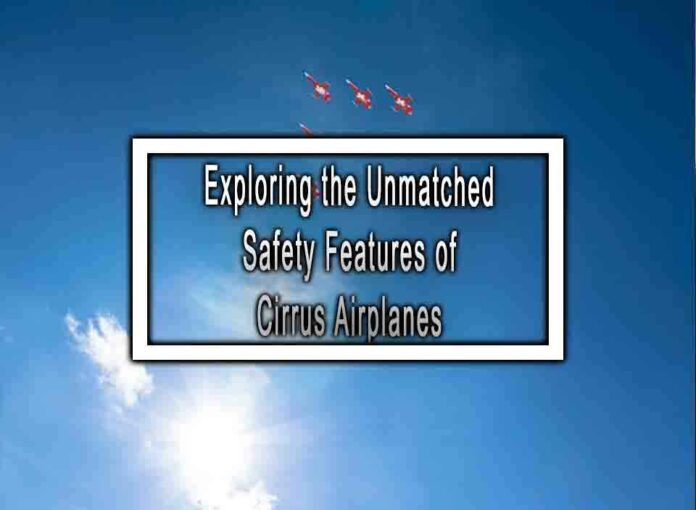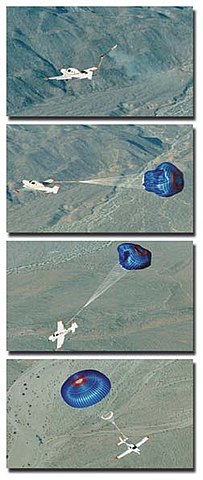Cirrus Aircraft is known for its commitment to safety, and its airplanes are equipped with a range of innovative features that enhance pilot and passenger safety. Here’s an exploration of some of the unmatched safety features found in Cirrus airplanes:
1. CAPS (Cirrus Airframe Parachute System):
- The CAPS is perhaps the most iconic safety feature in Cirrus aircraft. It’s a whole-aircraft parachute system designed to provide an emergency landing option in the event of an in-flight emergency.
- The CAPS system has saved numerous lives by allowing the entire aircraft to descend safely to the ground in situations where a traditional landing might not be possible.

2. Advanced Avionics:
- Cirrus aircraft come equipped with advanced avionics systems, including the Garmin Perspective+ avionics suite, which provides enhanced situational awareness and safety.
- Features like Synthetic Vision Technology (SVT) and Terrain and Obstacle Awareness help pilots navigate challenging conditions.
3. Airbag Seatbelts:
- Cirrus aircraft often feature airbag seatbelts for the pilot and front-seat passengers. These airbags can reduce the risk of injury in the event of a sudden stop or impact.
4. Electronic Stability and Protection (ESP):
- ESP is a safety system that helps prevent aircraft stalls and spins, which are significant contributors to accidents.
- It provides real-time feedback to the pilot and gently nudges the controls to keep the aircraft within safe flight parameters.
5. The Cirrus Airframe:
- Cirrus aircraft are built with a strong and robust airframe design, engineered to withstand various stresses and impacts, enhancing overall safety.
6. Flight Into Known Icing (FIKI) Capability:
- Many Cirrus models are equipped with a FIKI system, allowing them to safely operate in icing conditions.
- This feature enhances the aircraft’s capability to handle adverse weather conditions.
7. Enhanced Vision System (EVS):
- Some Cirrus aircraft are equipped with an EVS, which uses infrared technology to provide enhanced visibility during low-light conditions, reducing the risk of controlled flight into terrain.
8. Safety Training Programs:
- Cirrus offers a comprehensive training program, including Cirrus Approach, designed to educate pilots on the aircraft’s safety features and how to handle various emergency situations.
9. Global Connectivity and Safety Monitoring:
- Some Cirrus models are equipped with technology for real-time flight monitoring and communication, allowing ground personnel to track the aircraft’s status and location for added safety.
10. Onboard Parachute Repack Centers:
Cirrus offers a network of authorized service centers where owners can have their CAPS parachute system professionally inspected and repacked to maintain its reliability.
Cirrus Aircraft’s commitment to safety has made its airplanes a popular choice among pilots who prioritize security and peace of mind. The combination of innovative safety features, advanced avionics, and a robust airframe design contributes to a culture of safety in the aviation community. These features make Cirrus aircraft well-regarded for their unmatched safety features and contribute to safer flying experiences.












